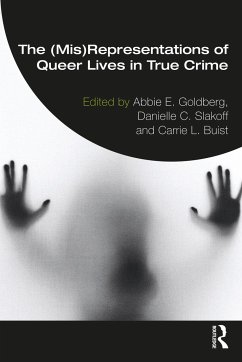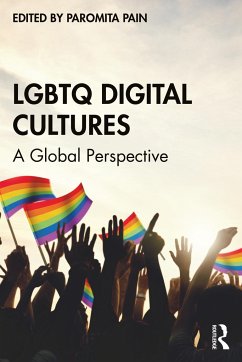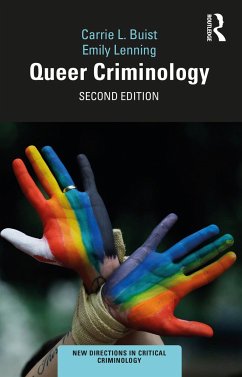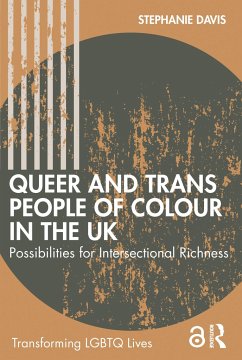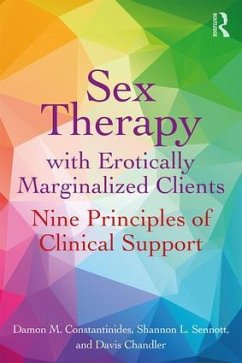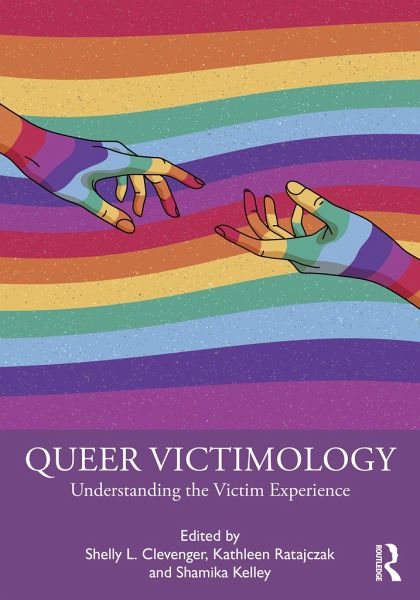
Queer Victimology
Understanding the Victim Experience
Herausgegeben: Clevenger, Shelly; Kelley, Shamika; Ratajczak, Kathleen
Versandkostenfrei!
Versandfertig in 6-10 Tagen
42,99 €
inkl. MwSt.
Weitere Ausgaben:

PAYBACK Punkte
21 °P sammeln!
This book provides a much-needed focus on the victimization experiences of those within the lesbian, gay, bisexual, transgender, Queer, intersex, or asexual (LGBTQIA) communities. With original research and scholarly work relating to victimization, supplemented by stories and poems detailing firsthand accounts by people in LGBTQIA communities, the volume editors shine a light on the experiences of those who have been harmed or who have suffered because of who they are.Allowing the reader to gain a deeper understanding of Queer victimization and LGBTQIA victims, the volume delves into how and w...
This book provides a much-needed focus on the victimization experiences of those within the lesbian, gay, bisexual, transgender, Queer, intersex, or asexual (LGBTQIA) communities. With original research and scholarly work relating to victimization, supplemented by stories and poems detailing firsthand accounts by people in LGBTQIA communities, the volume editors shine a light on the experiences of those who have been harmed or who have suffered because of who they are.
Allowing the reader to gain a deeper understanding of Queer victimization and LGBTQIA victims, the volume delves into how and why people are victimized, as well as how the criminal justice system and other social services interact with victims and each other. The creative pieces included give a direct voice to those who have most often been silenced in the past.
Queer Victimology is essential reading for scholars and students in the areas of criminology, victimology, sociology, gender studies, education, counseling, and/or psychology as well as anyone engaged with Queer, critical, and feminist criminologies, gender studies, diversity, and criminal justice.
Allowing the reader to gain a deeper understanding of Queer victimization and LGBTQIA victims, the volume delves into how and why people are victimized, as well as how the criminal justice system and other social services interact with victims and each other. The creative pieces included give a direct voice to those who have most often been silenced in the past.
Queer Victimology is essential reading for scholars and students in the areas of criminology, victimology, sociology, gender studies, education, counseling, and/or psychology as well as anyone engaged with Queer, critical, and feminist criminologies, gender studies, diversity, and criminal justice.






